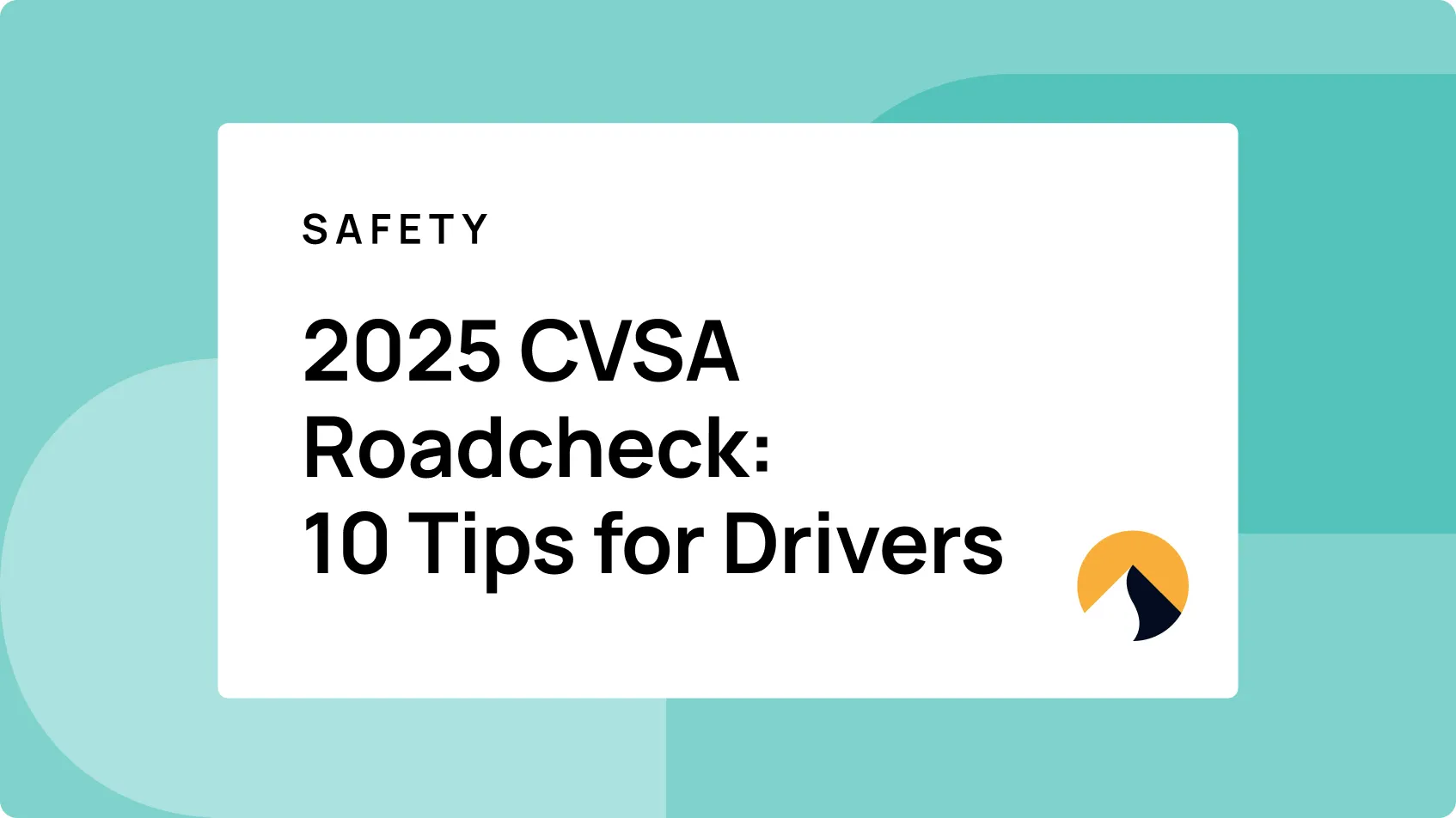Ensuring compliance with driver qualification (DQ) file requirements is critical for fleets of all sizes. Non-compliance can lead to costly fines, higher insurance premiums, and legal risks. As the Federal Motor Carrier Safety Administration (FMCSA) regulations evolve, staying on top of DQ file management is essential to protect drivers and keep operations running smoothly. With the right strategies and tools, fleets can minimize risks, improve safety, and maintain regulatory compliance.
Importance of maintaining complete DQ files
Keeping DQ files complete and up-to-date is key to compliance. Inaccurate or incomplete records can lead to fines, legal issues, and increased insurance costs. Failing to track expiring documents increases the risk of roadside violations, being placed out of service, and damaging CSA BASIC scores— all of which can raise insurance premiums.
FMCSA regulations & compliance
DQ files are mandated by Part 391 of the FMCSA regulations. Large fleets often use electronic platforms to manage these files, while smaller fleets may rely on paper records. However, without a structured tracking system for requirements and expiring documents, non-compliance remains a significant risk for big and small fleets.
Best practices for managing paper DQ files
For fleets with paper DQ files, organization is key. A checklist, such as the FMCSA Driver Qualification File Checklist, ensures all required documents are present and correctly stored. Retaining only necessary documents for the required duration reduces audit complications and potential penalties. Over-retaining documents can cause confusion during inspections, leading to unnecessary scrutiny.
Tracking expiring documents
Tracking expiring documents is crucial for compliance. A simple spreadsheet with alerts for expiring commercial driver's license or medical cards can help fleets stay on top of renewals. Additionally, FMCSA mandates that fleets run a new Motor Vehicle Record (MVR) within 15 days of a driver receiving a new medical card to ensure updated details are reflected in the driver’s state of license. It’s also necessary to verify that the medical examiner who performed the driver’s exam is listed in the FMCSA’s National Registry of Medical Examiners, with documentation kept in the DQ file.
Staying compliant made easy with the right tools & processes
With the right tools and processes in place, staying compliant with FMCSA regulations becomes easier. Efficient systems and trusted partners help fleets streamline DQ file management and reduce non-compliance risks. Incorporating DQ file maintenance into a fleet's overall safety program ensures compliance is a continuous priority. This proactive approach allows fleet managers to focus on keeping drivers safe and operations running smoothly.
By leveraging strategies, accurate tracking, and expert support, fleets can maintain compliance seamlessly, ensuring long-term success. A safety-first culture, where compliance is prioritized, enables successful outcomes in the face of audits and inspections.
To learn more about building a robust process for safety and DQ compliance, contact Nirvana at nirvanatech.com.
Ensuring compliance with driver qualification (DQ) file requirements is critical for fleets of all sizes. Non-compliance can lead to costly fines, higher insurance premiums, and legal risks. As the Federal Motor Carrier Safety Administration (FMCSA) regulations evolve, staying on top of DQ file management is essential to protect drivers and keep operations running smoothly. With the right strategies and tools, fleets can minimize risks, improve safety, and maintain regulatory compliance.
Importance of maintaining complete DQ files
Keeping DQ files complete and up-to-date is key to compliance. Inaccurate or incomplete records can lead to fines, legal issues, and increased insurance costs. Failing to track expiring documents increases the risk of roadside violations, being placed out of service, and damaging CSA BASIC scores— all of which can raise insurance premiums.
FMCSA regulations & compliance
DQ files are mandated by Part 391 of the FMCSA regulations. Large fleets often use electronic platforms to manage these files, while smaller fleets may rely on paper records. However, without a structured tracking system for requirements and expiring documents, non-compliance remains a significant risk for big and small fleets.
Best practices for managing paper DQ files
For fleets with paper DQ files, organization is key. A checklist, such as the FMCSA Driver Qualification File Checklist, ensures all required documents are present and correctly stored. Retaining only necessary documents for the required duration reduces audit complications and potential penalties. Over-retaining documents can cause confusion during inspections, leading to unnecessary scrutiny.
Tracking expiring documents
Tracking expiring documents is crucial for compliance. A simple spreadsheet with alerts for expiring commercial driver's license or medical cards can help fleets stay on top of renewals. Additionally, FMCSA mandates that fleets run a new Motor Vehicle Record (MVR) within 15 days of a driver receiving a new medical card to ensure updated details are reflected in the driver’s state of license. It’s also necessary to verify that the medical examiner who performed the driver’s exam is listed in the FMCSA’s National Registry of Medical Examiners, with documentation kept in the DQ file.
Staying compliant made easy with the right tools & processes
With the right tools and processes in place, staying compliant with FMCSA regulations becomes easier. Efficient systems and trusted partners help fleets streamline DQ file management and reduce non-compliance risks. Incorporating DQ file maintenance into a fleet's overall safety program ensures compliance is a continuous priority. This proactive approach allows fleet managers to focus on keeping drivers safe and operations running smoothly.
By leveraging strategies, accurate tracking, and expert support, fleets can maintain compliance seamlessly, ensuring long-term success. A safety-first culture, where compliance is prioritized, enables successful outcomes in the face of audits and inspections.
To learn more about building a robust process for safety and DQ compliance, contact Nirvana at nirvanatech.com.












